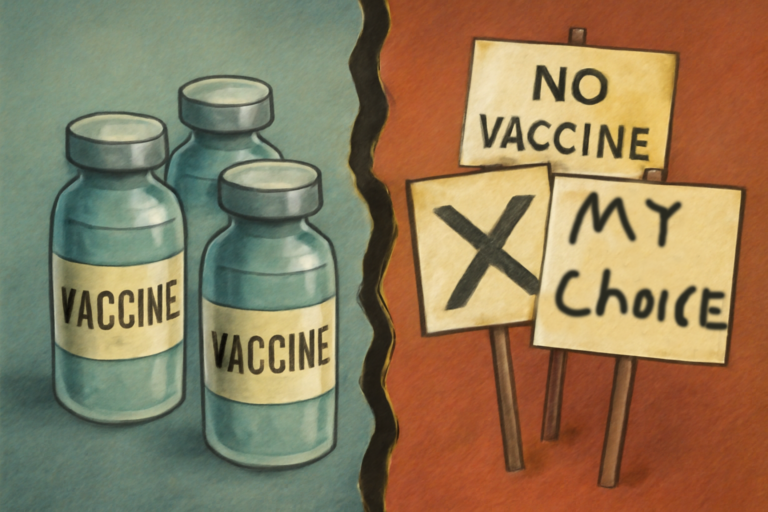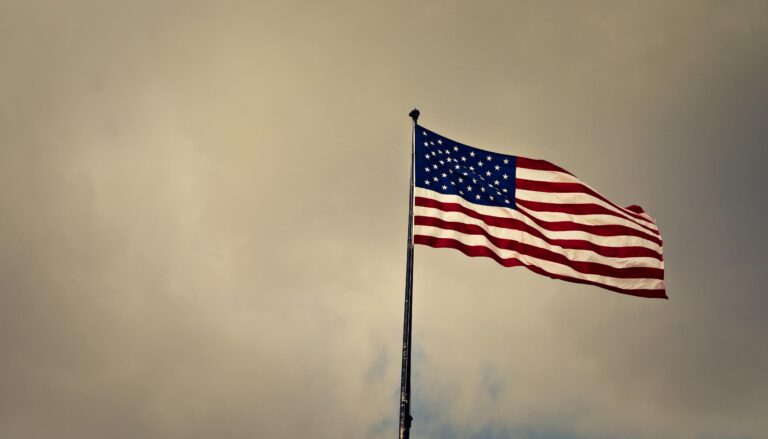Four Decades of Environmental Success

Kennedy’s supporters point to an impressive record of environmental achievement that spans over 40 years. His work with the Hudson River cleanup earned him recognition as TIME Magazine’s “Hero for the Planet,” transforming one of America’s most polluted waterways into what is now described as “the richest waterway in the North Atlantic”.
Through his leadership of Riverkeeper and later the Waterkeeper Alliance, Kennedy helped create a global movement that now includes over 300 organizations across 48 countries, protecting 2.8 million square miles of watersheds. His legal victories forced polluters to spend nearly $5 billion on environmental remediation, including successful lawsuits against major corporations like DuPont, Monsanto, and General Electric.
The New York City Watershed Agreement, which Kennedy negotiated in 1997, stands as an international model for sustainable development and stakeholder consensus negotiations. This achievement alone protected New York City’s upstate reservoir system and saved the city billions in unnecessary filtration costs.
Addressing America’s Chronic Disease Crisis
Kennedy’s supporters argue he’s tackling a real and urgent problem: America’s declining health outcomes compared to other wealthy nations. The statistics he cites about chronic disease rates, while sometimes exaggerated, point to genuine concerns. Americans do have higher rates of obesity, diabetes, and certain chronic conditions compared to other developed countries.
His “Make America Healthy Again” movement has gained bipartisan support for several proposals, including increased scrutiny of ultra-processed foods, food additives, and chemical exposures. Even critics like Democratic Colorado Governor Jared Polis and Independent Vermont Senator Bernie Sanders have praised some aspects of Kennedy’s agenda, particularly regarding food regulation, despite opposing his vaccine views.
The focus on environmental causes of chronic disease resonates with many Americans who have witnessed rising rates of conditions like autism, allergies, and autoimmune disorders in their communities. Kennedy’s emphasis on prevention through lifestyle and environmental changes, rather than pharmaceutical intervention, appeals to those seeking alternatives to a healthcare system they perceive as overly medicalized

Challenging Corporate Capture
One of Kennedy’s most compelling arguments centers on regulatory capture – the phenomenon where government agencies become too cozy with the industries they’re supposed to regulate. His supporters argue that his criticism of conflicts of interest between the FDA, CDC, and pharmaceutical companies reflects legitimate concerns about institutional independence.
Kennedy’s legal background in suing corporations gives him credibility when he argues that regulatory agencies have been compromised by industry influence. His supporters see his willingness to challenge established institutions not as conspiracy theorizing, but as necessary oversight of agencies that have lost public trust.
This anti-establishment message resonates particularly strongly among parents who feel dismissed by medical authorities when they raise concerns about their children’s health. The “MAHA moms” movement that helped drive support for Trump’s election represents a significant political force motivated by these concerns.
The Case Against RFK Jr: Public Health Threat and Misinformation Spreader
The Vaccine Misinformation Crisis

Kennedy’s critics argue that his most dangerous impact comes from his systematic undermining of vaccine confidence. Despite overwhelming scientific evidence showing vaccines are safe and effective, Kennedy has spent decades promoting the debunked theory that vaccines cause autism.
His organization, Children’s Health Defense, has been identified as one of the leading sources of vaccine misinformation. During the COVID-19 pandemic, Kennedy made false claims about vaccine safety that public health experts argue contributed to vaccine hesitancy and preventable deaths.
Since becoming Health Secretary, Kennedy has taken concrete actions that alarm the medical community. He fired all 17 members of the CDC’s Advisory Committee on Immunization Practices and replaced them with vaccine skeptics. He changed vaccine recommendations without following established scientific review processes. Most concerning to experts, he removed pregnant women and healthy children from COVID-19 vaccine schedules.
Scientific Community in Revolt
The breadth of opposition from the medical and scientific establishment is unprecedented. Thousands of physicians have signed letters opposing Kennedy’s confirmation. Major medical organizations including the American Academy of Pediatrics, American Public Health Association, and American Medical Association have condemned his appointment.
Nobel laureates have written that Kennedy would put the nation’s health in jeopardy. Former CDC directors and public health experts have warned that his actions could “roll back the achievements of US immunization policy” and “put US families at risk of dangerous and preventable illnesses”.
Kennedy has also fired top scientists and researchers from health agencies, eliminating whole programs at the CDC. His threat to stop government scientists from publishing in major medical journals has been called an attack on scientific freedom.
Pattern of Conspiracy Theories
Critics point to Kennedy’s long history of promoting conspiracy theories beyond vaccines. He has suggested that COVID-19 was “ethnically targeted” to spare certain groups, that chemicals in water could turn children transgender, and that HIV may not cause AIDS. He compared pandemic health measures to Nazi Germany and has promoted various other debunked theories.
This pattern, critics argue, shows someone whose judgment cannot be trusted with the nation’s public health. The concern isn’t just about individual false claims, but about a worldview that consistently favors conspiracy theories over established science.
Public Health Consequences
Perhaps most seriously, Kennedy’s critics warn of real-world consequences from his policies. Medical groups have filed lawsuits arguing his vaccine policy changes are “arbitrary” and “capricious” and violate federal law. During a current measles outbreak that has killed three people, Kennedy initially downplayed the severity before changing his stance.
Experts worry that Kennedy’s actions will lead to reduced vaccination rates, potentially causing outbreaks of preventable diseases. The decision to cut over a billion dollars in funding to Gavi, the Vaccine Alliance, which vaccinates children in low-income countries, could have global health consequences.
The Nuanced Reality: A Complex Figure in a Polarized Time
Environmental Success vs. Health Science Failure
The most striking aspect of the Kennedy debate is how his environmental record and health positions seem to come from different people. His environmental work demonstrates scientific rigor, evidence-based advocacy, and successful collaboration with experts. His health positions often contradict scientific consensus and promote debunked theories.
This contradiction suggests that Kennedy’s expertise in environmental law doesn’t necessarily translate to medical knowledge. While his success in challenging corporate polluters was based on solid science and legal evidence, his health advocacy often relies on cherry-picked studies and misinterpreted data.
Legitimate Concerns, Dangerous Solutions
Kennedy identifies some real problems with American health outcomes and regulatory capture. America does have higher chronic disease rates than other wealthy countries. There are legitimate concerns about conflicts of interest between regulators and industry. Food safety and chemical exposure deserve more attention.
However, critics argue that Kennedy’s solutions often make these problems worse rather than better. Instead of strengthening scientific review processes, he eliminates them. Instead of improving vaccine safety monitoring, he undermines confidence in proven interventions. Instead of addressing systemic issues, he promotes individual solutions that may harm public health.
The Trust Crisis in American Institutions
The Kennedy phenomenon reflects a broader crisis of trust in American institutions. Many Americans have lost faith in government agencies, medical establishments, and traditional media. Kennedy’s message resonates because it speaks to real frustrations with institutions that seem unresponsive to public concerns.
However, the solution to institutional problems isn’t necessarily to tear down the institutions. Kennedy’s supporters see him as a necessary disruptor of corrupt systems. His critics see him as someone who is destroying vital public health infrastructure without adequate replacements

Public Opinion: A Divided Nation
Recent polling shows Americans are conflicted about Kennedy and his agenda. A January 2025 survey found 30% of Americans supported Kennedy’s health agenda while 42% disapproved, with much higher support among conservatives. Republicans hold overwhelmingly positive views of Kennedy, while Democrats strongly oppose him.
This partisan divide reflects broader polarization in American politics, but it also shows how health policy has become politicized in unprecedented ways. The traditional bipartisan consensus around vaccines and public health has broken down, with potentially serious consequences for disease prevention.
Conclusion: The Stakes Are High
The debate over RFK Jr. represents more than just disagreement about one political figure. It reflects fundamental questions about expertise, authority, and trust in a democratic society. How do we balance skepticism of powerful institutions with respect for scientific evidence? How do we address legitimate concerns about corporate influence without undermining proven public health interventions?
Kennedy’s environmental record shows he can be an effective advocate when working within scientific consensus. His health positions show what happens when advocacy becomes untethered from evidence. The challenge for Americans is to separate the legitimate concerns Kennedy raises from the dangerous solutions he proposes.
The stakes couldn’t be higher. Public health depends on maintaining high vaccination rates, following evidence-based policies, and trusting scientific institutions. At the same time, these institutions must earn that trust by addressing conflicts of interest, improving transparency, and taking legitimate concerns seriously.
Whether Kennedy ultimately emerges as a truth-teller who reformed a broken system or a fear-monger who damaged public health will depend not just on his actions, but on how American society navigates these complex challenges. The evidence suggests he is neither simply hero nor villain, but a flawed figure whose impact will depend on whether his genuine concerns can be separated from his dangerous misconceptions.
The American people deserve health leaders who combine Kennedy’s passion for challenging corporate power with respect for scientific evidence and expert consensus. Whether such leadership can emerge from the current polarized environment remains an open question – one that may determine the future of public health in America.
